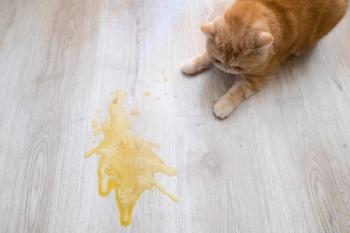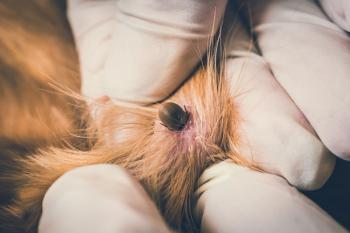
The zen of cats: Maximizing the feline portion of your practice (Proceedings)
The premise of this presentation is that feline medicine is good business. The keys to tapping into this market are several: understanding the significance of the feline market in your practice today and its future potential, understanding the psyche of the feline client and recognizing the different psychographic profile of cat vs. dog owners, using preventative medicine, specifically feline total parasite control, as a tool to practice better feline medicine, and, ultimately, realizing an increased feline average per client charge by practicing a higher quality feline medicine.
The premise of this presentation is that feline medicine is good business. The keys to tapping into this market are several: understanding the significance of the feline market in your practice today and its future potential, understanding the psyche of the feline client and recognizing the different psychographic profile of cat vs. dog owners, using preventative medicine, specifically feline total parasite control, as a tool to practice better feline medicine, and, ultimately, realizing an increased feline average per client charge by practicing a higher quality feline medicine.
The mechanics of how to create a more "cat-friendly" environment in your hospital are also discussed. Some changes are as a result of alteration in the physical design of the facility; yet, some are as simple as changing small decorative aspects of the veterinary hospital. Some are also related to client educational programs. The sum total is to present to the cat owning public a hospital that presents a "cat-friendly" persona. The point will be made that, as good medicine equals good business, a conscious effort should be made to institute a preventative medicine program for cats that will not only allow the hospital to be considered a "cat-friendly" facility, but to increase the business monthly income of the facility as well. To this end, a discussion of the institution of a feline heartworm preventative program in your hospital will be presented. Information about how (specific recommendations for initiating and maintaining staff involvement) and why this should be done will also follow. A detailed discussion of feline heartworm disease will follow as one of the most significant aspects of total parasite control in the cat.
Feline heartworm disease is discussed in detail. Differences in diagnostic methods of Dirofilaria immitis (including their indication, strengths, and limitations) will be examined. The pathogenesis of adult D. immitis in the feline cardiovascular/pulmonary system can lead to a complex of well described clinical signs such as chronic vomiting, coughing, acute respiratory disease complex, and sudden death. Most commonly, these infections by adult D. immitis are asymptomatic. Additionally and more ominously, new research has shown reasons why damage done by feline heartworms may be more pervasive than previously believed. New data suggests that immature D. immitis larvae migrating in the cat's pulmonary parenchyma may be culpable for clinical disease as well, whether or not these larvae actually mature to adults. This is be due to the fact that pulmonary damage happens from migrating sub-adult phases of heartworms that may be killed by host immunogenicity before adult worms establish a presence in the heart of infected cats. This would make the prevalence of this disease much higher than originally thought. Diagnosis of this syndrome is difficult. However, research has shown that the pulmonary pathology (and subsequent clinical signs) of this larval syndrome is equal to that of the pathology caused by the presence of adults in the pulmonary system. This new information makes the recommendation for feline heartworm disease more medically significant.
Gastrointestinal parasitism and Bartonella will be highlighted as examples of diseases that are to be considered in total parasite control for the cat. The veterinarian has a role and a responsibility to prevent diseases transmissible from cats to people by practicing total parasite control for his/her patients. This role will be delineated. The concept of good medicine equating with good business will be a common thread in this talk to show that the medical, moral and ethical obligations of the veterinarian also results in the best business practices.
Newsletter
From exam room tips to practice management insights, get trusted veterinary news delivered straight to your inbox—subscribe to dvm360.





